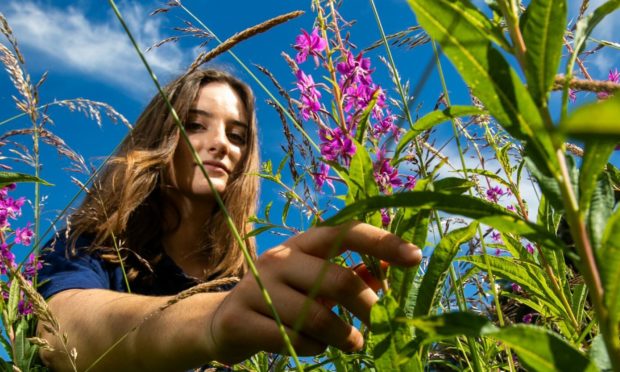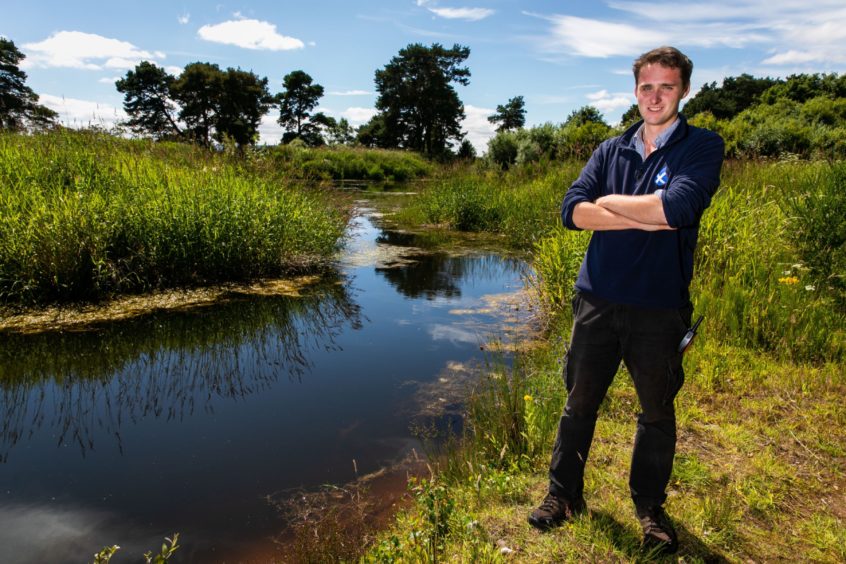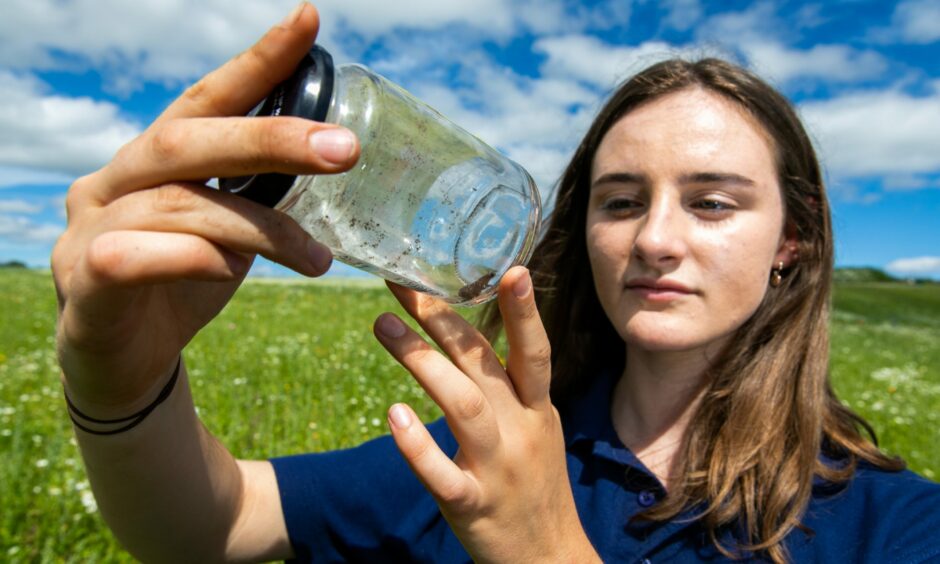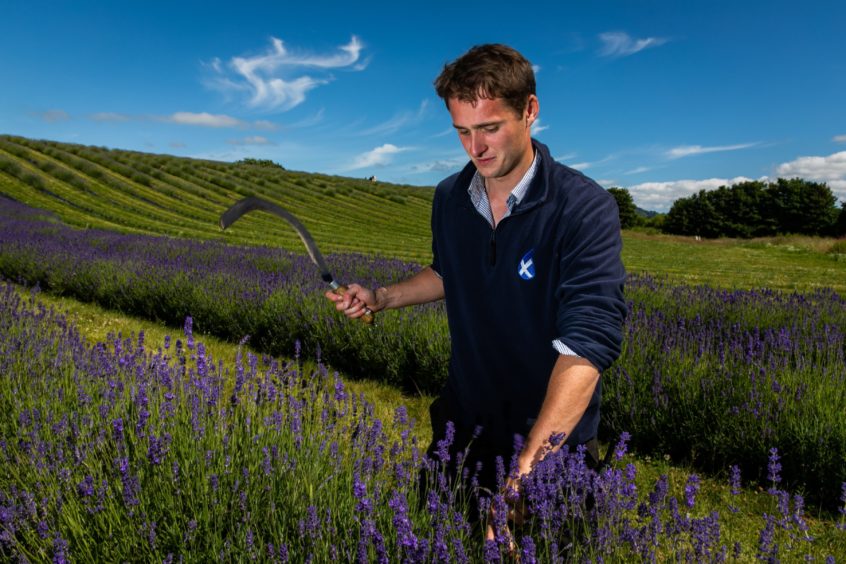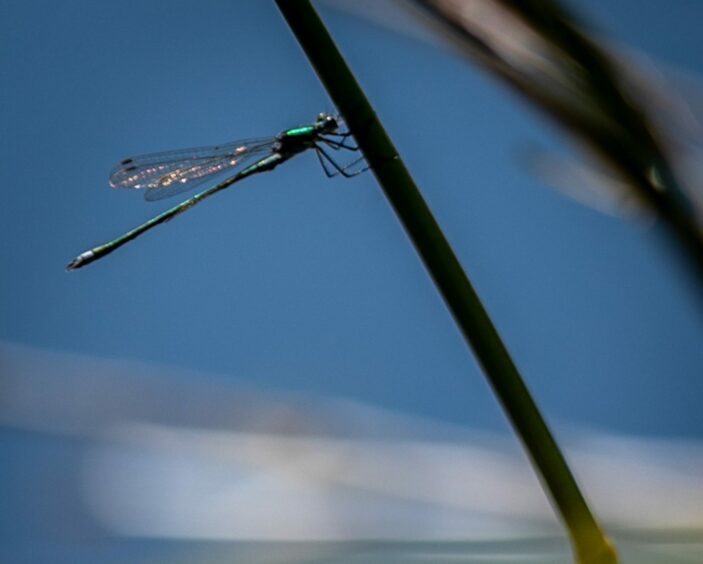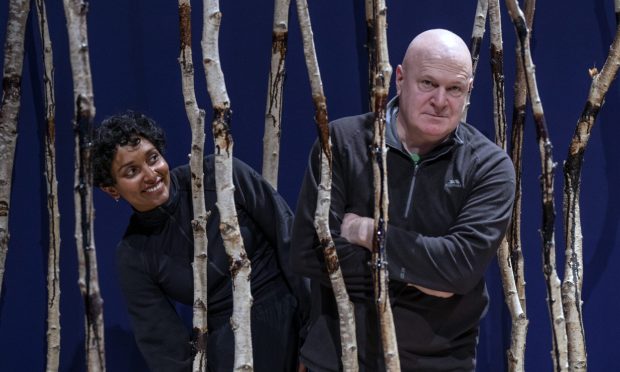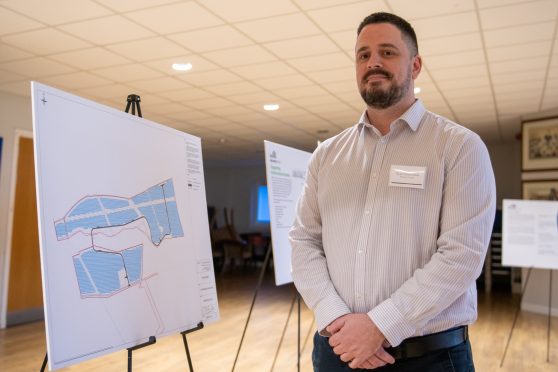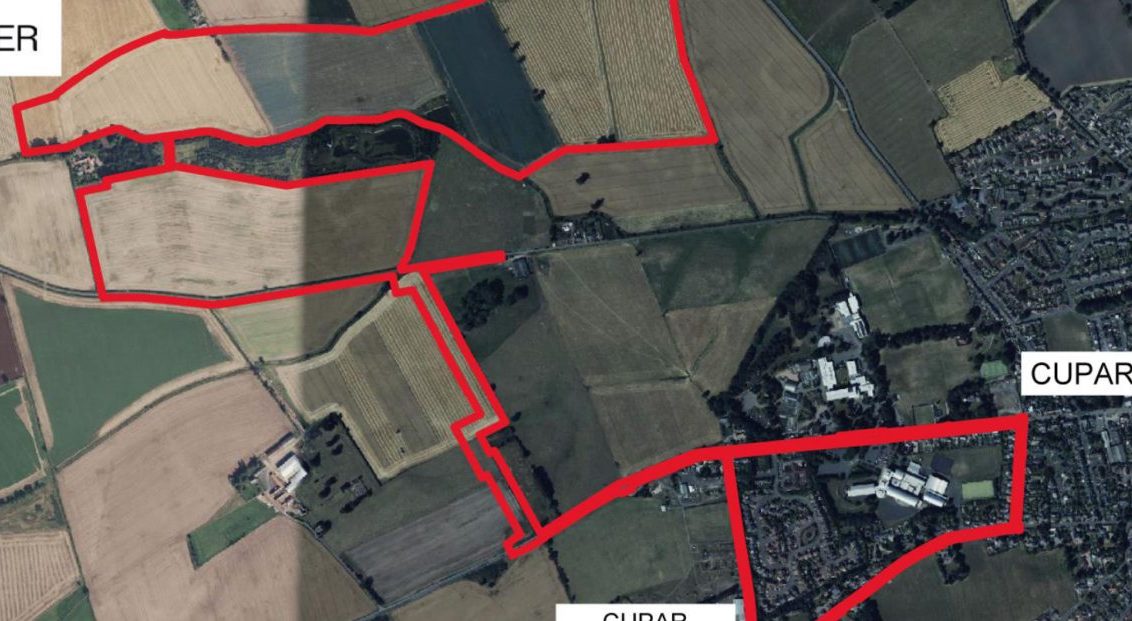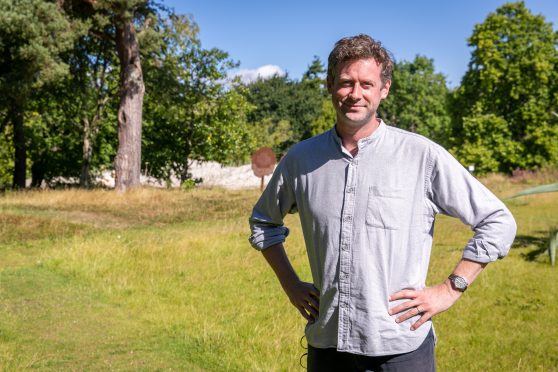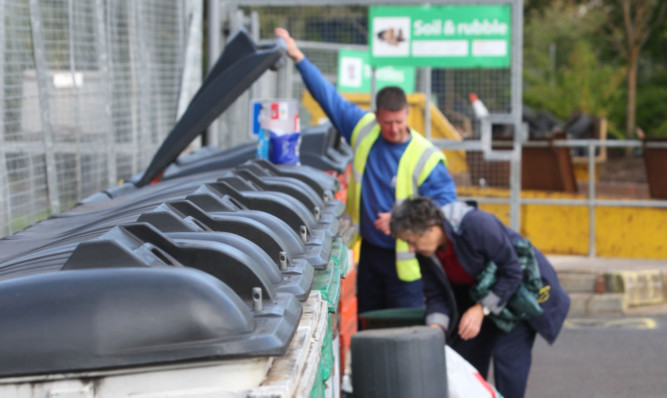A Fife farm business is letting its fields go wild to boost local biodiversity.
Tarhill Farm near Kinross, which is home to Scottish Lavender Oils, is run by Rory Irwin and his father Graham.
Since moving to the site six years ago, they have made efforts to ‘rewild’.
A dried up former fish lagoon has been transformed into a wildlife rich lochan.
And they have let large swathes of land become overgrown.
Bug surveys
But they plan to do more to encourage wildlife and this summer they are being assisted by St Andrews biology student Anna Lornie.
Anna, 21, who is surveying the plants, bees, butterflies, and other bugs at Tarhill, is advising them on ways to boost biodiversity even further.
She said: “It’s quite grass dominated. So I’m going to be looking at ways to suggest how they can diversify more — maybe make it more wildflower dominated.
“That way we could encourage more species and also make it look nicer for the public coming in.
“It’s looking at the best way to maximise local biodiversity.”
Anna added: “We’re in an ecological crisis. We need to be thinking about ways that we can help what we have left.”
“People love it as well.”
Purple reign
The land at Tarhill Farm hosts traditional crops including barley and peas.
However, its lavender fields are its most popular feature.
The blooms provide the raw materials for essential oils and soap sold at the farm. In addition, the photogenic purple plants are also a draw for visitors armed with cameras.
Rory said they had not received any grants towards their rewilding projects.
But he said if there were more financial incentives to rewild areas of farmland, more farmers might take a similar approach to help biodiversity.
Incentives needed for farmers to ‘adapt’
“My key view is that we shouldn’t disparage conventional farming. They do operate on very tight margins and I’m not here to tell them how to do it,” he said.
“Scottish farmers are some of the best in the world and care about the environment.
“The grant system is going to be the thing that changes it.
“You can’t attribute blame to the farmers. It’s really government policy that has to help and encourage them to adapt.”
Rewilding has brought ‘enormous change’
Oxford graduate Rory, 25, studied law. However a career as a lawyer did not appeal to him and he followed his father’s footsteps into farming.
He said they had taken two different approaches to rewilding at Tarhill.
“One is to just leave something — just leave the ground to become overgrown and not cultivate it,” he said.
“We haven’t cultivated to the margins of the field.
“The other one is a more hands-on approach. That’s where the lochan comes in.”
“That was an old industrial site — concrete everywhere. We came in and turned it into a lochan and purposely reflooded it.
“There’s been enormous change. If you just look at typical arable farm scenery and compare it to what we see here, it’s just totally different.”
Deer welcome
Rory says there is not much need for deer fences at Tarhill, and welcomes visiting ungulates.
“As for the wildlife, we have a lot of brown hare running around.
“We have a no blood sport policy and there are lots of roe deer. They don’t cause us any trouble with these crops.
“They do eat the saplings. If you’ve been watching a sapling for four years, you sort of get to know it in a way. If you come back in the morning and a deer has eaten it, you think that’s just how nature works.”
